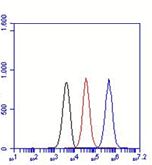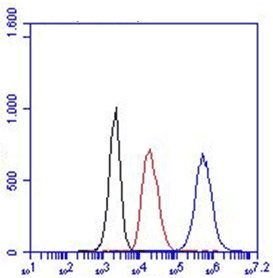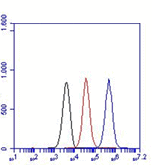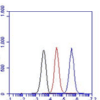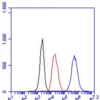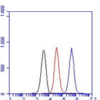Podoplanin, Mouse, clone pMab-1
€133.00 – €1,245.00
Monoclonal antibody pMab-1 recognizes human Podoplanin (PDPN; agrrus). Podoplanin is a small type_I transmembrane sialoglycoprotein expressed on a broad range of cell types and involved in platelet aggregation and tumor metastasis. The ca 38 kDa mouse protein was initially identified as a biomarker of lympatic endothelium, alveolar epithelium and glomerular podocytes. Expression has also been found in many tumors. However the functional role of PDPN is still poorly understood. Podoplanin consists of an extracellular domain, transmembrane domain and a cytoplasmic tail. In its extracellular domain it possesses a platelet aggregation stimulating (PLAG) domain. Podoplanin has got three PLAG domains of which PLAG3 is critical for binding with C-type lectin receptor-2 (CLEC-2). This PDPN specific receptor mediates platelet aggregation. This interaction is required to initiate and maintain separation of blood and lymphatic vessels and can be critical in process of cancer metastasis. This may lead to PDPN as possible therapeutic target. Antibody PMab-1 is produced against the platelet aggregation-stimulating domain of mouse PDPN and can be applied in western blotting, FACS and immunohistochemistry. Administration of PMab-1 in vivo reduces lymphangiogenesis in the corneal suture and ear wound healing models. PMab-1 also suppresses the infiltration of thioglycollate-induced macrophages at the site of wound healing. Furthermore, administration of PMab-1 leads to a significant suppression of the rejection reaction in the corneal transplantation model.
W: A reduced or non-reduced sample treatment and SDS-Page can be used. The band size is ~40 kDa.
